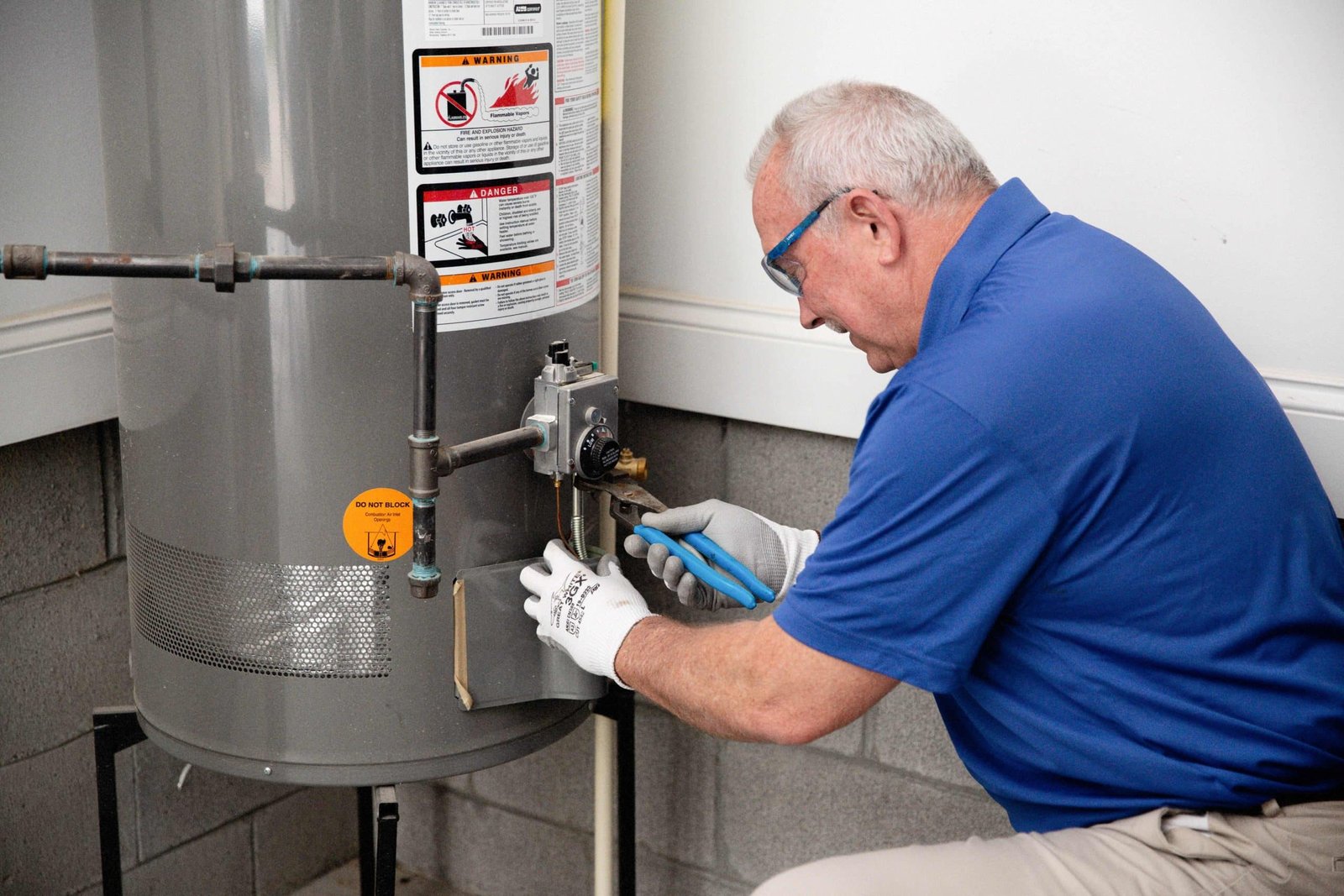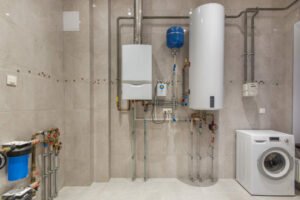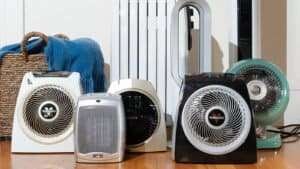
Water Heater Sizes and Capacities
Selecting the right water heater size and capacity is crucial to ensuring your home has enough hot water while keeping energy costs in check. Whether you’re considering a gas water heater, electric water heater, or an instant water heater, understanding what size and capacity you need can help you find the best water heater for your home. In this guide, we’ll walk through how to determine the ideal water heater size based on your household’s needs and budget, as well as examine the varying water heater prices in the USA.

Table of Contents
Why Water Heater Size Matters
Choosing the right water heater size is important for two main reasons: comfort and efficiency. If your water heater is too small, you’ll run out of hot water quickly, which can be frustrating for larger households. On the other hand, if it’s too large, it will consume more energy than necessary, leading to higher energy bills. Striking the right balance ensures you have a steady supply of hot water while saving on energy costs.
1. Understanding Water Heater Types
Before diving into sizing, it’s important to understand the main types of water heaters available:
- Gas Water Heater: Powered by natural gas or propane, these are often used in homes where natural gas is readily available. They heat water faster and are generally cheaper to operate than electric models.
- Electric Water Heater: These heaters use electricity to heat water. They are easier to install and generally have lower upfront costs, though their long-term operational costs may be higher depending on electricity prices.
- Instant Water Heater: Also known as tankless water heaters, these provide hot water on demand without storing it in a tank. They are highly efficient but may come with a higher installation cost.
Understanding the type of water heater you need will help guide your size and capacity decision.
2. How to Determine the Right Water Heater Capacity
When choosing a water heater, capacity refers to how much hot water the heater can produce or store. For tank water heaters (gas or electric), capacity is measured in gallons, while for instant water heaters, it’s measured in gallons per minute (GPM). The best way to decide on the appropriate capacity is to consider the number of people in your household and their daily hot water usage.
For Tank Water Heaters
If you opt for a gas water heater or electric water heater with a tank, here’s a general guide to help you choose:
- 1-2 people: A 30-gallon tank is typically sufficient.
- 2-3 people: Opt for a 40-gallon tank.
- 3-4 people: A 50-gallon tank should be enough.
- 5+ people: You may need a 60-80 gallon tank, depending on usage.
Larger families tend to use more hot water, especially during peak times like mornings and evenings when everyone is showering or using the dishwasher.
For Instant Water Heaters
Unlike tank water heaters, instant water heaters don’t store water. Instead, they heat water as you need it, so the capacity is measured by the rate at which they can heat water (usually in GPM). The more appliances and fixtures you use simultaneously, the higher the GPM requirement.
- 1-2 GPM: Suitable for one shower or a small appliance like a dishwasher.
- 3-5 GPM: Can handle a shower and one appliance at the same time.
- 5+ GPM: Ideal for larger homes with multiple showers and appliances running at once.
For larger households, an instant water heater with a higher GPM or multiple units installed in different areas of the home may be necessary to ensure consistent hot water.
3. Consider Peak Hour Demand
One of the most important factors to consider when choosing a water heater is your home’s peak hour demand. This refers to the time of day when your household uses the most hot water. For example, in the morning when everyone is showering or washing dishes, your demand for hot water will be higher.
4. Sizing Based on First-Hour Rating (FHR)
When purchasing a gas water heater or electric water heater, pay attention to the first-hour rating (FHR). This rating indicates how much hot water the heater can supply within an hour when the tank is full. Your peak hour demand should match or slightly exceed the FHR of the heater you choose.
For example:
- A household with a peak hour demand of 50 gallons will need a heater with an FHR of at least 50 gallons.
- Larger households with peak hour demands of 70-100 gallons will need a heater with a higher FHR, typically requiring a larger tank or a more powerful instant water heater.
5. Comparing Water Heater Prices in the USA
The water heater price in the USA can vary significantly depending on the type, size, and energy efficiency of the unit. Here’s a general breakdown:
- Gas Water Heater: Typically range from $500 to $1,500 depending on the size and efficiency level.
- Electric Water Heater: These are generally more affordable, with prices ranging from $300 to $1,000.
- Instant Water Heater: Tankless models can be more expensive, with prices ranging from $700 to $2,500 or more due to higher installation costs.
While instant water heaters have a higher upfront cost, they can save you money in the long run due to their superior energy efficiency.
6. Energy Efficiency Considerations
When choosing a water heater, energy efficiency is just as important as size and capacity. Look for models with the Energy Star rating, which signifies that they meet specific energy efficiency standards. Whether you opt for a gas water heater, electric water heater, or instant water heater, investing in an energy-efficient model will help reduce long-term operating costs.
7. When to Upgrade Your Water Heater
If your water heater is more than 10-12 years old, it may be time to consider upgrading to a more efficient model. Newer gas water heaters and electric water heaters are far more energy-efficient than older models, which can help lower your energy bills while providing better performance.
Conclusion: Finding the Perfect Fit for Your Home
Choosing the right water heater size and capacity is all about balancing your household’s hot water needs with energy efficiency and cost. Whether you’re considering a gas water heater, electric water heater, or an instant water heater, knowing the size and capacity that fits your home will ensure you always have enough hot water while avoiding unnecessary energy consumption. Take into account your peak hour demand, first-hour rating, and household size when making your decision, and don’t forget to consider energy-efficient models to save money in the long run.

FAQs
1. How do I determine the right water heater size for my home?
Consider the number of people in your household and your peak hour water demand. A larger household will need a larger tank or a high GPM for tankless models.
2. What is the average water heater price in the USA?
Prices range from $300 for smaller electric models to $2,500 or more for larger, energy-efficient tankless units.
3. What is the first-hour rating (FHR)?
FHR indicates how much hot water a heater can supply in an hour, especially during peak usage.
4. Is a gas water heater more efficient than an electric one?
Gas water heaters tend to be more cost-effective to operate, though electric heaters are easier and cheaper to install.
5. How can I improve the energy efficiency of my water heater?
Choose an Energy Star-rated model, and consider upgrading to a tankless water heater to reduce standby heat loss.






